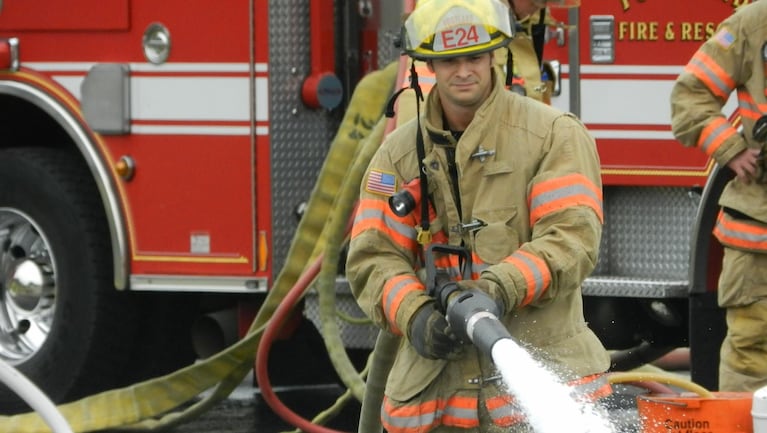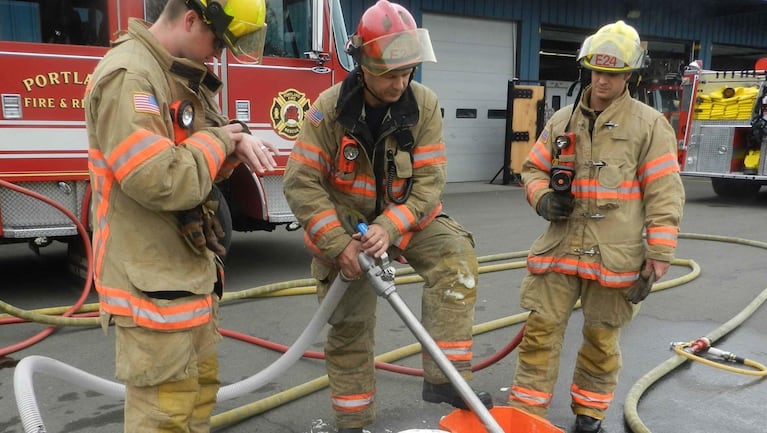
Firefighters with Portland Fire and Rescue demonstrate how they would apply fire retardant foam to contain and extinguish an oil train fire.
Anthony Schick / OPB
PORTLAND -- Three oil trains roll through the city each week en route to a shipping terminal down the Columbia River near Clatskanie, Oregon.
If one of them were to derail, Portland firefighters say they're not equipped for a major spill, fire, or explosion along the lines of last year's Lac-Megantic explosion in Quebec, Canada.
Portland Fire and Rescue Lt. Dave Keller says the city's fire department could only adequately respond to a smaller-scale derailment -- maybe one car leaking fuel or one car on fire.
"I’m pretty confident we could handle that and do a pretty efficient job with it," Keller says. "Where it’s gonna get more dynamic is when we have multiple cars on fire or multiple cars that have derailed. Or possibly the train’s derailed and we have two different fires burning at once ... We would not be able to handle a large scale incident like that."
WATCH the video:
Firefighters cannot use water to extinguish petroleum-based fires because they would risk causing what firefighters call a "boil over." That's what happens when rapidly vaporizing water causes an explosion. Firefighters must use a flame-retardant foam to smother an oil fire's oxygen supply and block the oil's highly flammable vapors from finding new ignition sources.
Portland Fire and Rescue has more than 2,000 gallons of fire retardant foam between its fire engines, foam units, and storage reserves across the city. That translates to roughly half an hour of consistent fire fighting capability, if it could all be collected into a single reservoir -— a swimming pool, containment pond, or a specifically designed "foam tote" —- at the site of an accident.
The problem, says Keller, is that it could take up to several hours to mobilize and transport the city's foam resources from distant stations, fire engines, and storage facilities to a single accident site.
As things stand now, Portland Fire and Rescue would instead have to rely primarily on the assistance of its regional partners, the Vancouver Fire Department and Portland International Airport, to initiate a rapid response in the event of a large-scale oil train derailment.
Keller says the city needs to invest in larger foam reserves, additional hose adapter nozzles, and new foam totes if it wants to adequately outfit the city's firefighters to handle a large oil train fire.

